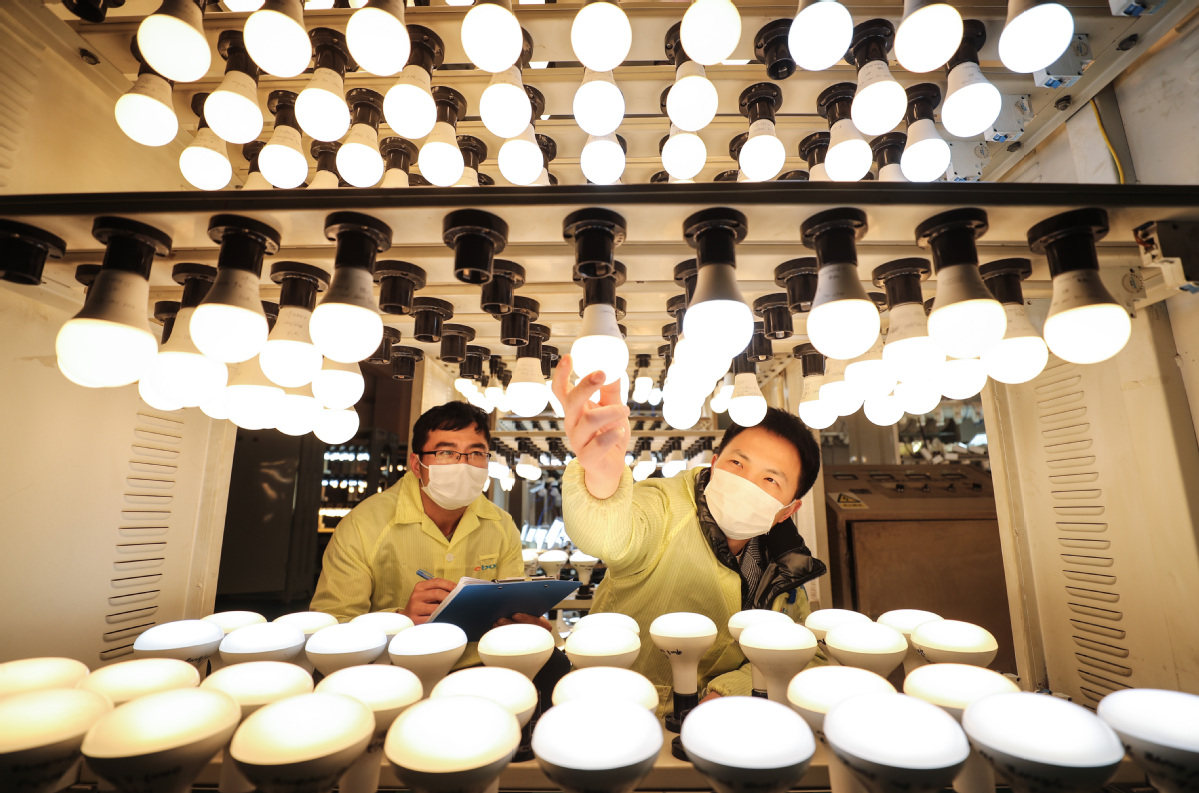Country's strengths key to global stability


As the COVID-19 outbreak sweeps across the globe and causes severe economic damage, whether China-so far the only major economy that has largely brought the disease under control-can manage a brisk recovery concerns not only the country itself, but the entire world.
China's economy has accelerated steps for recovery as epidemic containment efforts bear fruit. The purchasing managers' index rebounded to 52 for March, returning to expansion territory and up from 35.7 in February.
The international community expects the world's second-largest economy to be an anchor amid hard-hit global growth, while China's top leadership has also vowed to contribute to global economic stability.
I would argue that the crucial task for China now is to maintain and advance its key strengths as follows.
The first strength is China's position as "the world's factory". Ranging from luxuries to needles and thread, or from aircraft parts to computer keyboards, China has provided countless goods to the rest of the world for decades.
As the coronavirus spreads, surgical masks, medical equipment and daily necessities have been in short supply in more and more economies, and some of them have turned to China for help. In this time of crisis, China's strong manufacturing and supply capacity has assumed greater importance.
A recent top-level meeting of China's leadership has called for strengthening international economic cooperation and ensuring the smooth flow of international freight, signaling the country's determination to satisfy pressing global demand.
Chinese enterprises should spare no efforts in adapting to changes in external demand due to the pandemic, and provide scarce supplies in a timely fashion. In particular, medical equipment manufacturers should ramp up research and development to upgrade their products to better satisfy practical needs in overseas markets.
As Chinese enterprises resume production and expand capacity, epidemic-control-related goods will be continuously delivered to the rest of the world as part of the fight against the pandemic.
This will also help China buffer the shock of weakening external demand in the short term, and maintain its heft as the world's factory and its position in the global supply chain in the long term-all conducive to achieving steady economic development.
The second strength is China's vast domestic market with its strong demand. Annual per capita GDP surpassed $10,000 in China last year, while the country has a 400 million-strong middle-income population, the largest in the world.
China will further unleash the full potential of domestic consumption by eradicating poverty. The country is determined to complete the task of poverty eradication by the end of this year.
For sure, it is a challenge for China to eradicate poverty.
But it is the mission of the Communist Party of China to accomplish this goal before the 100th anniversary of the Party's founding in 2021. In addition to putting the central authorities' directions of poverty eradication into place, ensuring no major rebound of the novel coronavirus epidemic is key to achieving this goal.
The vast and still growing domestic market means that China has the potential to boost demand and provide impressive investment opportunities for global capital. Both factors are crucial for the global economy to recover once the COVID-19 pandemic ends.
In short, by maintaining the key strengths of having both a strong manufacturing capacity and a vibrant domestic market, China can serve as a powerful force in the world's efforts to contain the virus and ease economic fallout.
For China, reinforcing these advantages will help ensure that its economy stays connected with the rest of the world.
In other words, the COVID-19 pandemic demonstrates that the fates of China and the world are closely linked. Only with mutual trust and international cooperation can we win the battle against the virus.
Sharing epidemic control experiences, revitalizing domestic economic conditions, providing crucial supplies to countries in need and calling for more international cooperation-these are how China tries to fully contribute to the mutual battle and perform its commitment to building a community with a shared future for mankind.
In addition, it is worthwhile for China, together with the rest of the world, to study how the pandemic broke out to learn lessons for future development.
For instance, the epidemic outbreak in Wuhan and soon in the whole of Hubei province has reminded us of some meaningful questions. Should urban clusters grow without limitations? Do cities have enough emergency facilities and plans to deal with epidemics or disasters?
With nine additional programs established, the United States Federal Reserve now has currency swaps with 14 central banks covering five continents. Three Asian economies are included, namely Japan, South Korea and Singapore.
China should discuss similar arrangements with overseas central banks to tackle potential liquidity shortages and raise China's role in solving international crises.
The author is a senior researcher with the Chongyang Institute for Financial Studies at the Renmin University of China and former chief representative of Zurcher Kantonalbank's Beijing office.




































